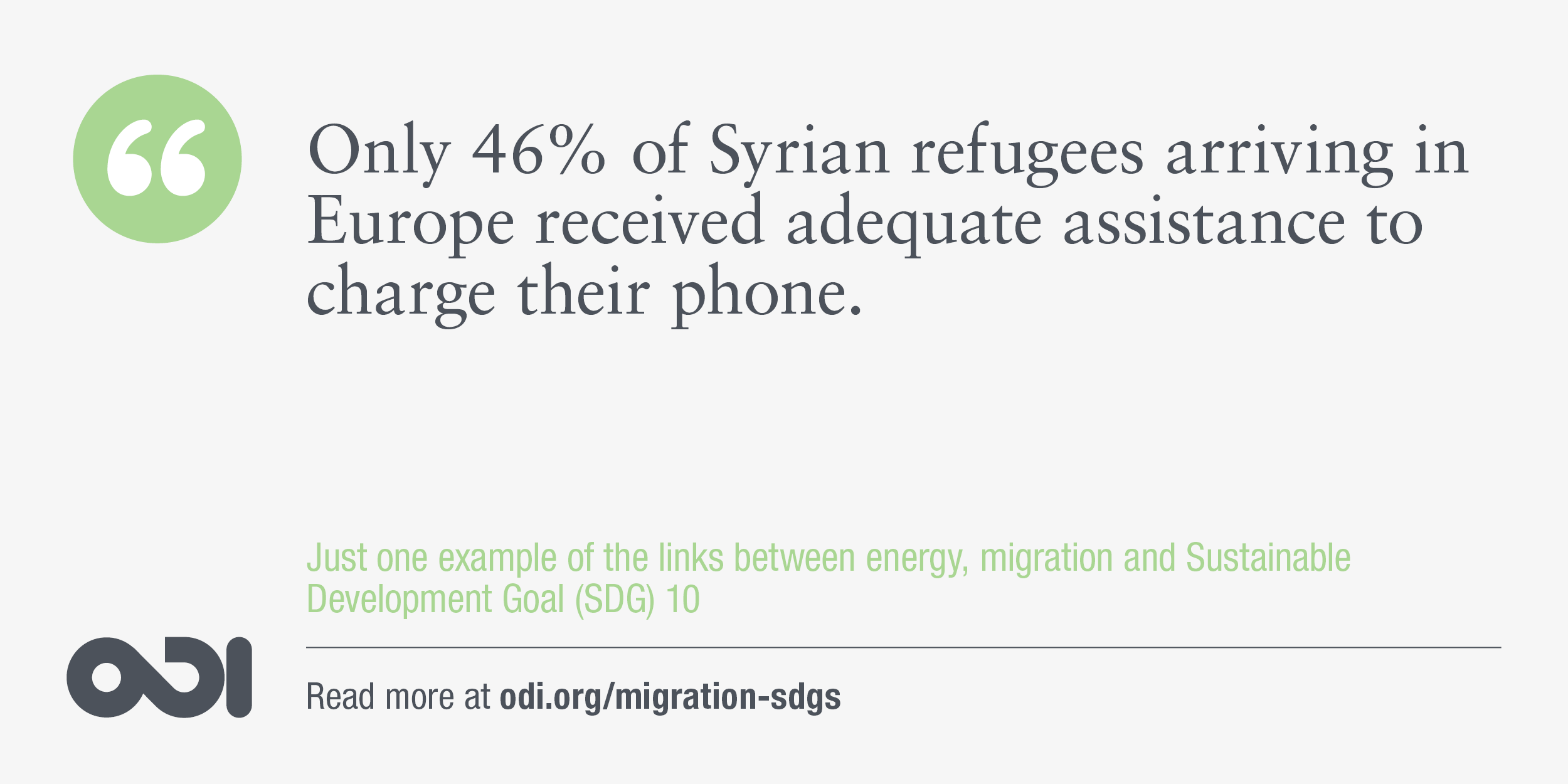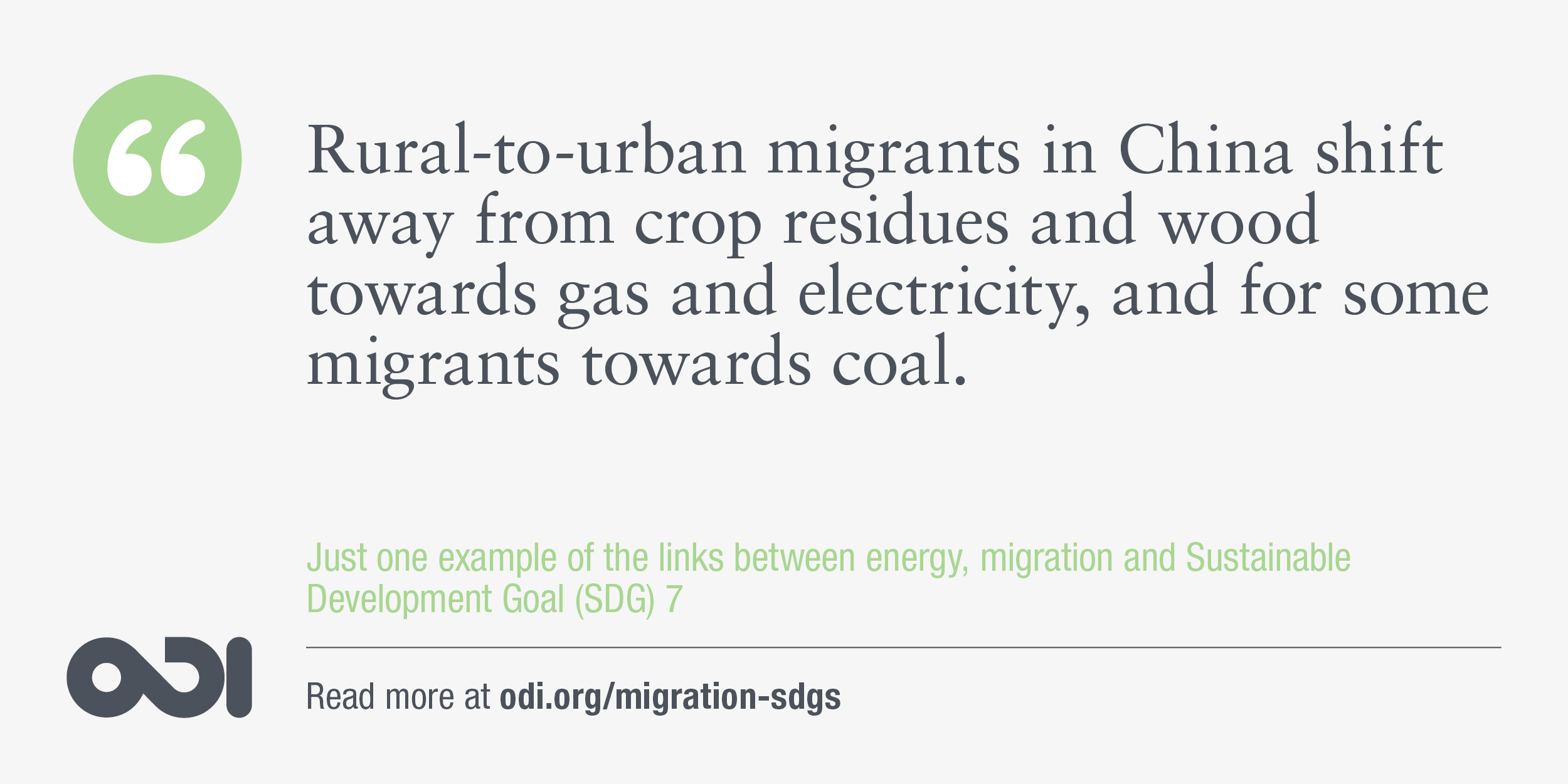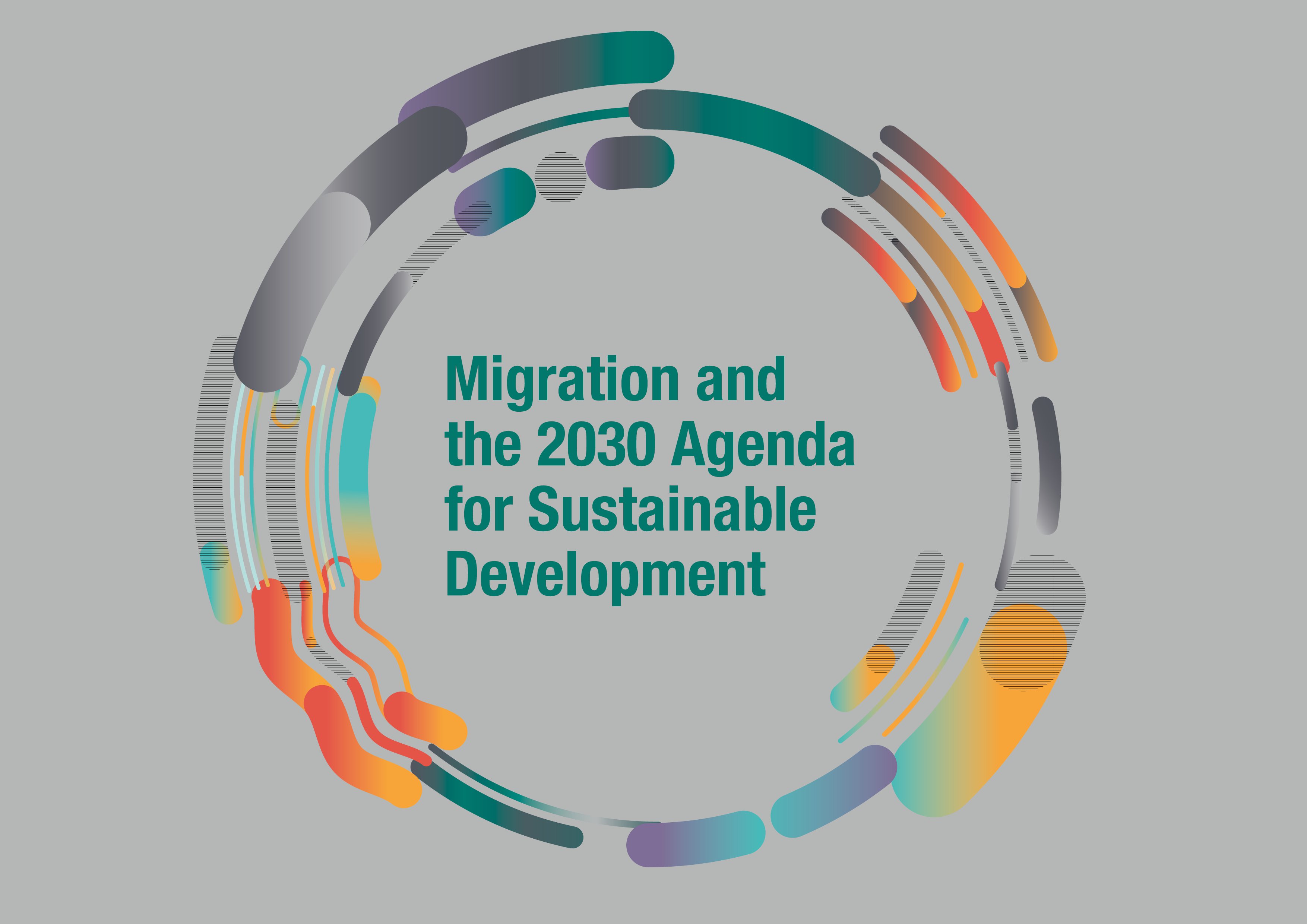This briefing considers the direct and indirect relationships between migration and energy services in places of origin and destination, and how changes due to migration will affect achievement of the Sustainable Development Goals (SDGs), notably SDG 7 (affordable and clean energy). Access to energy services – or the lack of it – can contribute to migration; and migration's social and economic gains are only realised with the use of energy – lighting, cooking, heating, cooling, communications, mobility and motive power. These links underscore the necessity of considering the impact of migration on achieving SDG 7, and the impact energy has on migration decisions and journeys.
Key messages
Migration can contribute to improving access to reliable, affordable modern energy services (SDG target 7.1) by enabling higher incomes for migrants and through the sending of remittances.
The informal or irregular status of many migrants is a barrier to universal access to modern energy services. Migrants in informal settlements and displaced people often experience a worsening in their access to modern energy services.
Migrants require knowledge about modern energy services and markets to ensure equitable access to reliable, affordable energy in high-income countries. They may transfer this energy knowledge to their communities of origin.
This is the ninth in a series of policy briefings on the relationship between migration and 2030 Agenda for Sustainable Development.




